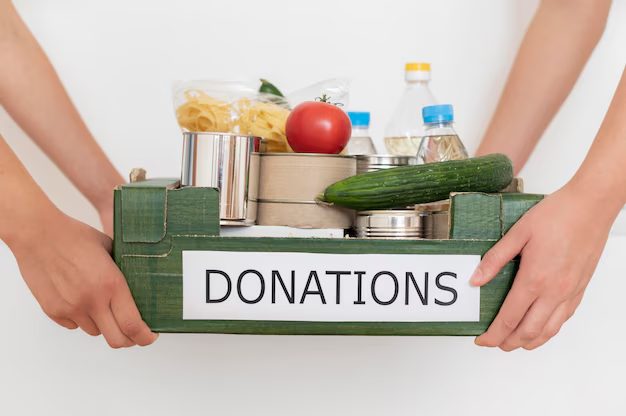What You Need to Know About Donating Expired Food to Food Banks
Finding a way to help those in need often starts with apprehending the best practices of food donation. Among the frequent queries that potential donors have is, "Do food banks take expired food?" Let's explore this topic to dispel myths and offer clear guidance for anyone interested in donating their pantry's surplus effectively and responsibly.
Understanding Expiration Dates: What They Really Mean
Expiration vs. Best-By Dates
Before diving into the policies of food banks, it's essential to understand that expiration dates aren't as straightforward as they might seem. There are various labels you might encounter:
Sell-By Date: This date is intended for retailers, suggesting when the product should be sold by but not consumed by. It's used primarily for inventory management.
Best-By Date: This indicates when a product will have the best flavor or quality. This isn't a purchase or safety date.
Use-By Date: This is the last date recommended for the use of the product while at peak quality. However, this date is still more about quality than safety.
Are Expired Foods Safe?
Food past its "expiration" date can often be safely consumed. In many cases, food quality rather than food safety is affected after these dates. Dry goods, canned foods, and certain beverages remain consumable well past their labeled dates under proper storage conditions.
What Food Banks Generally Accept
Standard Policies
Most food banks prioritize safety and quality. While some may accept certain non-perishable items past their best-by date, expired perishable foods are usually prohibitive due to spoilage risks. Actual policies can vary, so let's examine the general practices and considerations.
Non-Perishable Foods
- Canned Goods: Generally acceptable, even post best-by dates, if the packaging is intact and free from visible dents or rust.
- Dry Goods: Foods like pasta, rice, and grains often have a long shelf life. If stored properly, they can be viable post-label date.
Perishable Items
- Items requiring refrigeration, like dairy and fresh produce, have stricter safety standards. Expiration dates are more rigorously adhered to, given spoilage risks.
Why Some Food Banks Accept Expired Goods
- Resource Allocation: Some food banks may prioritize resources where demand is highest, which sometimes allows for using non-perishables that are slightly past their best-by date.
- Reducing Food Waste: In an effort to be more sustainable, some find ways to safely distribute goods technically expired but still edible.
The Donation Process: Best Practices
Check Expiration Dates
When preparing to donate, go through your items to check expiration dates. Consider only sending those still within or slightly beyond the best-by date if you're unsure of a particular food bank’s policy.
Inspect Packaging
Ensure integrity: Items with damaged packaging may not be accepted due to potential contamination.
Specific Guidelines from Food Banks
It's always advisable to contact local food banks to understand their specific policies. They can provide guidance tailored to their community's needs and safety protocols.
The Ethical Implications
Balancing Safety with Compassion
Food banks have an ethical responsibility to provide safe, nutrient-rich foods to those they serve. Consuming expired foods, if safe, can be a responsible way to minimize waste and extend resources.
Educating Communities
Helping communities learn about expiration dates can shift consumer habits and motivate more responsible donation practices.
How to Effectively Support Your Local Food Bank
Volunteer Efforts
Beyond donations, giving your time can be highly beneficial. Volunteer roles can include sorting donations, distributing food packages, and more.
Monetary Contributions
Financial donations offer flexibility, allowing food banks to purchase items needed most or maintain operational costs.
Summary and Key Takeaways
Here's how you can effectively contribute to food banks while understanding policies regarding expired foods:
- 🤔 Check Before You Donate: Always verify food bank policies on expired foods.
- 🛒 Inspect Your Pantry: Non-perishable, undamaged foods are ideal for donation.
- 📞 Contact Local Food Banks: Reach out for specific guidelines and needs.
- ♻️ Think Sustainability: Donate wisely to reduce waste while supporting those in need.
Remember, while tangible donations are invaluable, spreading knowledge about best practices can empower more effective community support. Engaging responsibly ensures that your efforts have the most profound impact possible for those relying on food banks for sustenance.

Related Topics
- Are Food Banks Free
- Are There Any Food Banks Open Today
- Can Anyone Go To a Food Bank
- Can Anyone Go To The Food Bank
- Can You Bring Food Into Citizens Bank Park
- Can You Take Food Into Citizens Bank Park
- How Do Food Banks Work
- How Do I Get Food Bank
- How Do I Start a Food Bank
- How Do You Get Food From a Food Bank
